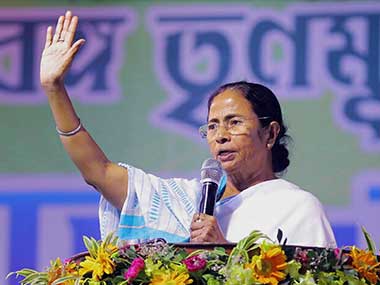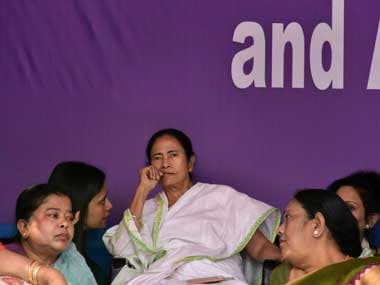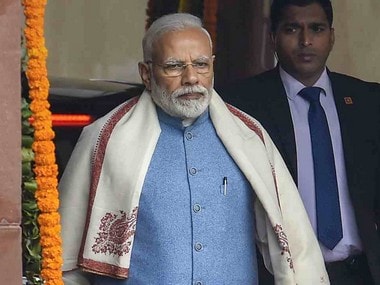There’s a larger political game that plays out far away from summons, petitions, review petitions or court judgments. Often the narrative for this game is so far removed from reality that it is almost contradictory, but it matters little so long as the narrative serves the bigger political objective. Tuesday’s developments, for instance, provide a test case.
The Supreme Court has directed Kolkata police commissioner Rajeev Kumar, who previously ignored multiple CBI summons and even went “missing” — causing West Bengal chief minister Mamata Banerjee to apologise before the Election Commission — to appear before the CBI. The central investigative agency moved the apex court against the “non-cooperation” of Mamata government after Bengal police briefly arrested CBI officials who visited Kumar’s residence in Kolkata to question him on Sunday. Footage and pictures emerged of CBI officers being coerced and dragged into police jeeps by cops. There was clear attempt on part of the state administration to block the CBI from doing its job and impede investigation into the multi-crore chit fund scams.
The three-judge bench of Chief Justice of India Ranjan Gogoi and justices Deepak Gupta and Sanjiv Khanna asked Kolkata’s top police officer to “co-operate” with the CBI probe into the Saradha scam and also issued a notice to West Bengal chief secretary, the DGP, and Kumar in the contempt of court application filed by the CBI. Along with this, the top court restrained the agency from taking any “coercive steps” such as arresting Kumar and ruled that CBI interrogation of Kolkata’s top cop must be done at Shillong in Meghalaya, a “neutral venue”.
The last point is more significant than it appears. The CBI has complained of threats and intimidation while carrying out its probe into the multi-crore chit fund scams in West Bengal. The home ministry received a report from the CBI detailing how the officers faced harassment and obstruction while doing their job of probing the scam under directions from the apex court.
Reports were also received that the residence of Joint Director, CBI was surrounded by Kolkata police. MHA, thereafter, took action to deploy Central Armed Police Forces at the office and residential premises of CBI in Kolkata: sources @IndianExpress
— rahul tripathi (@rahultripathi) February 4, 2019
The CBI was, therefore, keen to question the Kolkata police chief in Delhi, while the West Bengal government wanted it to be held on its own turf in Kolkata. The court chose Shillong, and the CJI reportedly said “go to Shillong. It is a cool place. Both sides will remain cool there.” It is difficult to interpret this development any other way than concluding that the court order is a setback for the West Bengal chief minister, who rushed to her favourite cop’s residence late on Sunday night and sat on an “indefinite dharna” to “protest” against CBI’s move to question him.
And yet, Mamata has claimed “moral victory”, “a victory of the people”, and said she was “grateful” to the Supreme Court. She further claimed that her case was “strong from the very beginning”. Her reaction, delivered from the ‘dharna’ stage in Kolkata, drew rapturous applause from assorted TMC ministers, members and cadres.
The spin in Mamata’s statement would make even Shane Warne or Anil Kumble blush, but the point is that as long as the TMC supremo succeeds in convincing her cadres and even the electorate that she, indeed, has emerged “victorious” from the face-off, her objective is met. One might be inclined to term the chief minister’s stance as “delusional”, but that would a misreading of the way politics plays on the ground. Mamata, as the following set of tweets suggests, was forced to shift her goalposts following the Supreme Court order but it would be wrong to imagine that this apparent “setback” in court would result in a political setback for the Bengal chief minister.
West Bengal CM Mamata Banerjee: I am ready to give my life but not compromise. I did not take to the streets when you touched TMC leaders. But I am angry when they tried to insult the chair of the Kolkata Police Commissioner, he is leading the organisation. pic.twitter.com/XhI0uEhpu5
— ANI (@ANI) February 4, 2019
#NewsAlert | No one is the big boss of this country. Democracy is the big boss of this country. I am not pleading for Rajeev Kumar. I am pleading for millions of people of this country: Mamata Banerjee to reporters pic.twitter.com/zaN0lXmh4c
— moneycontrol (@moneycontrolcom) February 5, 2019
The entire fracas, executed to perfection by the West Bengal chief minister, may instead bring political dividend. There’s a caveat, however. Mamata may have calculated that her victimhood card and street politics will reinforce her cult status in the state, while virulent protestations of “Super Emergency”, “destruction of democracy”, “damage to India’s federal structure and institutions” and wild charges against Prime Minister Narendra Modi and BJP chief Amit Shah will draw national attention and catapult her onto the big stage where she is competing with other ambitious chieftains for the prime minister’s chair.
However, in her zeal to create a constitutional crisis and harvest political gain, Mamata inadvertently did the BJP a favour in Bengal. The saffron unit lacks in organisational strength and is devoid of a local leader with mass support. For these structural shortcomings, it has not been able to quite fill the Opposition space that still lies vacant. Its influence is growing in pockets, but so far BJP’s rising footprint has come entirely at CPM’s expense with Congress holding on to its nominal but core vote share.
The BJP has — despite a mighty push from the party’s central leadership that has targeted at least 23 of the 42 Lok Sabha seats on offer — been unable yet to make a dent in TMC’s strongholds despite an undercurrent of public opinion against Mamata’s Tughlaki ways. To the saffron unit’s advantage, it has little to lose at this point.
By indulging in melodrama and theatrical statements, Mamata further polarised the electorate in West Bengal, giving BJP a mighty push towards emerging as the chief Opposition and shoving the CPM further into oblivion. Pictures of BJP party office being vandalised allegedly by TMC workers, posters of Modi resembling Hitler, cries of ‘Modi bharat chodo’ by TMC cadres, Mamata’s fiery statements against the prime minister may help raise BJP’s profile among the swing voters unhappy with Mamata.
Conversely, blaming Modi and Shah for “misusing CBI” and rushing to defend a police officer who is under scanner in connection with the investigations into the Saradha and Rose Valley ponzi schemes that defrauded millions of poor in West Bengal of their hard-earned money, Mamata has seemingly obstructed a hypermoral act. The power this act — of a top cop evading CBI and later sharing a political stage with Mamata — can never be underestimated. It may sharply divide opinions and the BJP, which starts off a low base, has more to gain.
On the bigger stage of national politics, Mamata may have secured for herself some limelight. Her high-octane adversarial position against BJP places her squarely on top of the amorphous group jostling for space and attention. It is instructive to note that Congress chief Rahul Gandhi did not share Mamata’s ‘dharna’ stage beyond posting a tweet. Some Opposition leaders extended their support to Mamata, but her move to obstruct the CBI from going after suspects places her and the Opposition leaders at a disadvantage.
It gives Modi the chance to create a ‘chowkidar vs corrupt’ narrative and aid the prime minister’s attempts in forging a presidential campaign. BJP will go to town that Modi alone stands for corruption-free regime and the others — as Arun Jaitley put in his Tuesday’s blog — The Kleptocrat’s Club.
So Mamata’s histrionics might aid her in her state and even in her ambition for the top post, but it is not necessarily a disadvantage for the BJP. Both parties “win”.
source: Firstpost.com








































